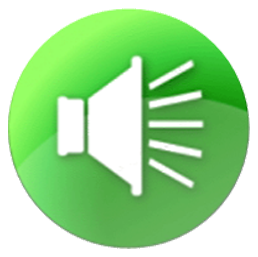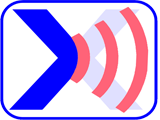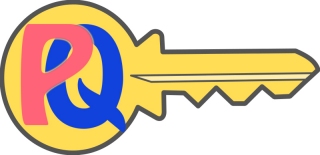 |
 |
 |
 |
 |
 |
 |
 |
|
Name |
Common |
Silent |
Schwa |
Similar |
Different |
Blended |
Combined |
 Letters can be strange. They can make different sounds depending on how they are used in words. For example, click the speaker button and listen carefully to the different ways the letter “A” sounds in these words:
Letters can be strange. They can make different sounds depending on how they are used in words. For example, click the speaker button and listen carefully to the different ways the letter “A” sounds in these words:
 Cake Boat Dad Soda Ball Said
Cake Boat Dad Soda Ball Said
 From A to Z: all the letters have more than one sound, and many letters have 3 or more. These differences in the ways letters can sound can be very confusing. Learning to recognize which sound each letter in a word is supposed to make, is the KEY to becoming a good reader.
From A to Z: all the letters have more than one sound, and many letters have 3 or more. These differences in the ways letters can sound can be very confusing. Learning to recognize which sound each letter in a word is supposed to make, is the KEY to becoming a good reader.
 PQs is the short name for “Pronunciation Cues”. PQs “cue”, or, “tell” you, which of a letter’s sounds it is supposed to sound like. PQs makes letters tell you which of their sounds they are making by changing how the letters look. For example, click the speaker button and watch how different the letter “A” looks when we use the PQs:
PQs is the short name for “Pronunciation Cues”. PQs “cue”, or, “tell” you, which of a letter’s sounds it is supposed to sound like. PQs makes letters tell you which of their sounds they are making by changing how the letters look. For example, click the speaker button and watch how different the letter “A” looks when we use the PQs:
 Cake Boat Dad Soda Ball Said
Cake Boat Dad Soda Ball Said
 Did you notice how the letter “A” looked different when it sounded different? Those different ways the letters looked are “PQs”. PQs are ways of making letters look different so that they can tell you which of their sounds they are making.
Did you notice how the letter “A” looked different when it sounded different? Those different ways the letters looked are “PQs”. PQs are ways of making letters look different so that they can tell you which of their sounds they are making.
 By using the PQ App and paying attention to the different ways letters look when they make their different sounds, you will learn all you need to learn, to read better. However, if you would like to learn more about the different types of Pcues, just keep reading this page.
By using the PQ App and paying attention to the different ways letters look when they make their different sounds, you will learn all you need to learn, to read better. However, if you would like to learn more about the different types of Pcues, just keep reading this page.
 There are three types of Pcues: Single Letter Simple, Single Letter Exception, and Group Letters.
There are three types of Pcues: Single Letter Simple, Single Letter Exception, and Group Letters.
 Single Letter Simple: Bold, Silent, and Common
Single Letter Simple: Bold, Silent, and Common
 PQs makes letters bold, to tell you when they are making their letter-name, or alphabet sound. PQs makes letters gray, to tell you when they don’t make any sound at all. Watch and listen to each word below, and notice how the letters that are bolded sound like their letter-name sound, and the letters that are gray are not heard at all:
PQs makes letters bold, to tell you when they are making their letter-name, or alphabet sound. PQs makes letters gray, to tell you when they don’t make any sound at all. Watch and listen to each word below, and notice how the letters that are bolded sound like their letter-name sound, and the letters that are gray are not heard at all:
 Ape Baby Icy Lady Left
Ape Baby Icy Lady Left
Gene High Jay Skate Bell
Ten Boat Car Bumpy Dress Excuse Envy Exact Why
 Did you notice that some letters weren’t bold, or gray? That’s because they are making their most common sound. Like the “a” in apple, or the “c” in cat. With PQs, you can always tell when a letter is making its common sound, because it looks normal – because it doesn’t have a different look. Here are some words where all the letters in each word are making their common sounds:
Did you notice that some letters weren’t bold, or gray? That’s because they are making their most common sound. Like the “a” in apple, or the “c” in cat. With PQs, you can always tell when a letter is making its common sound, because it looks normal – because it doesn’t have a different look. Here are some words where all the letters in each word are making their common sounds:
 bat cup jet land pet red sand up win six
bat cup jet land pet red sand up win six
 Single Letter Exceptions
Single Letter Exceptions
 In addition to the PQs you have seen so far (bold for letter-names, gray for silent letters, and normal for common sounds), there are PQs to help you recognize the other different ways letters can sound.
In addition to the PQs you have seen so far (bold for letter-names, gray for silent letters, and normal for common sounds), there are PQs to help you recognize the other different ways letters can sound.
 A’s, E’s, I’s, O’s, and Y’s can sometimes sound like “uh“. When they do, we shrink them to tell you that they are making the “uh” sound:
A’s, E’s, I’s, O’s, and Y’s can sometimes sound like “uh“. When they do, we shrink them to tell you that they are making the “uh” sound:
 Away Soda Item Family
Away Soda Item Family
Possible Son Love Vinyl Daryl
 The “er” sound you hear in “her”, and “burger”, can also be heard in many other words that use an “R“, but don’t use an “E” in front of it. For example, listen for the “er” sound in these words:
The “er” sound you hear in “her”, and “burger”, can also be heard in many other words that use an “R“, but don’t use an “E” in front of it. For example, listen for the “er” sound in these words:
 Sugar Lizard Worm Color Girl Pearl Ogre Fire Syrup
Sugar Lizard Worm Color Girl Pearl Ogre Fire Syrup
 PQs tells you when the letter “R” is making it’s “er” sound by rotating the letter. Look at these words with PQs turned on and notice how the “R” is rotated:
PQs tells you when the letter “R” is making it’s “er” sound by rotating the letter. Look at these words with PQs turned on and notice how the “R” is rotated:
 Sugar Lizard Her Letter Worm
Sugar Lizard Her Letter Worm
Color Girl Pearl Ogre Fire Syrup
 Sometimes letters can make a longer and more drawn out sound, like the way the “A” sounds in “ball”. When they do, we stretch the letter to tell you:
Sometimes letters can make a longer and more drawn out sound, like the way the “A” sounds in “ball”. When they do, we stretch the letter to tell you:
 Taco Tall Obama
Taco Tall Obama
 PQs also stretches the letter “U”, whenever it makes it’s “whuh”, sound:
PQs also stretches the letter “U”, whenever it makes it’s “whuh”, sound:
 Quote Banquet Cuisine Language
Quote Banquet Cuisine Language
Persuade
 The two other kinds of Single Letter Exception PQs are raised and lowered. Sometimes, letters can make too many sounds for PQs to tell you exactly what sound they are making. When this happens, we raise the letter when it is making a “higher” sound, and lower the letter when it is making a “lower” sound. For example, to tell you that the “S” at the end of “his”, and “hers”, is making a “Z” sound, we raise it. Look and listen to the raised letters in these words:
The two other kinds of Single Letter Exception PQs are raised and lowered. Sometimes, letters can make too many sounds for PQs to tell you exactly what sound they are making. When this happens, we raise the letter when it is making a “higher” sound, and lower the letter when it is making a “lower” sound. For example, to tell you that the “S” at the end of “his”, and “hers”, is making a “Z” sound, we raise it. Look and listen to the raised letters in these words:
 When ‘E’ makes an “A” sound, it is making a lower sound. When “G” makes a “J” sound it is making a lower sound. Look and listen to the lowered letters in these words.
When ‘E’ makes an “A” sound, it is making a lower sound. When “G” makes a “J” sound it is making a lower sound. Look and listen to the lowered letters in these words.
 Eight Ginger Onion Book Put Synonym
Eight Ginger Onion Book Put Synonym
 Group Letters:
Group Letters:
 Often the sounds you hear in words are made by the way two or more letters “group” together. There are two kinds of groups: “combinations” and “blends”.
Often the sounds you hear in words are made by the way two or more letters “group” together. There are two kinds of groups: “combinations” and “blends”.
 Combinations are groups of letters that don’t sound anything like the individual letters within them. To tell you which letters are making combination sounds, we underline them. Pay careful attention to the sounds the underlined letters are making in the words below:
Combinations are groups of letters that don’t sound anything like the individual letters within them. To tell you which letters are making combination sounds, we underline them. Pay careful attention to the sounds the underlined letters are making in the words below:
 Them Peach Phone Cough Capture
Them Peach Phone Cough Capture
Motion Toy Boil Vision Ancient Amateur
 Blends are groups that sound like their letters are mashed together and spoken faster. With blends you can hear the individual sounds of the letters within them. To tell you which letters are blending together, we underline them with dashes. Pay careful attention to the sounds of letters that have dashes underneath them in the words below:
Blends are groups that sound like their letters are mashed together and spoken faster. With blends you can hear the individual sounds of the letters within them. To tell you which letters are blending together, we underline them with dashes. Pay careful attention to the sounds of letters that have dashes underneath them in the words below:
 Air Bear Their Care Weird Length Eating Four Cure Pyramid
Air Bear Their Care Weird Length Eating Four Cure Pyramid
 Once you learn to recognize the different PQs and how they tell you to make a letter or group of letters sound, you will learn to recognize words much easier.
Once you learn to recognize the different PQs and how they tell you to make a letter or group of letters sound, you will learn to recognize words much easier.
 If you are interested in learning more about PQs you can visit our grid of examples that lists each letter of the alphabet and the types of PQs that it uses: AtoZ.
If you are interested in learning more about PQs you can visit our grid of examples that lists each letter of the alphabet and the types of PQs that it uses: AtoZ.


 You can also review the PQs Key which provides additional examples by PQ types or PQs Logic which will explain the design and principles behind PQs.
You can also review the PQs Key which provides additional examples by PQ types or PQs Logic which will explain the design and principles behind PQs.
| AtoZ |
Name |
Common |
Silent |
Schwa |
Similar |
Different |
Blended |
Combined |



















